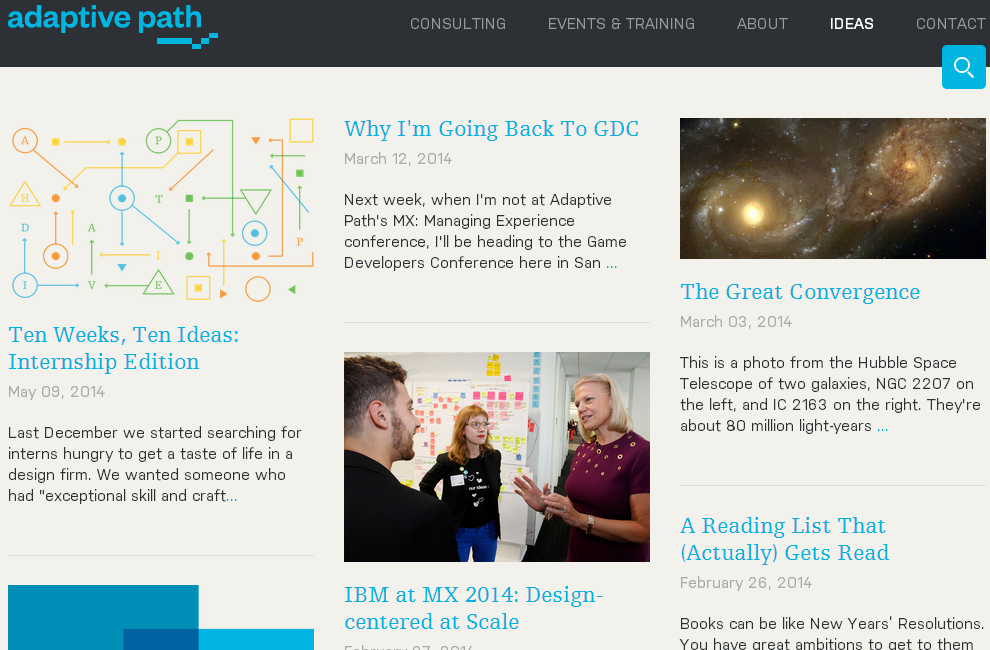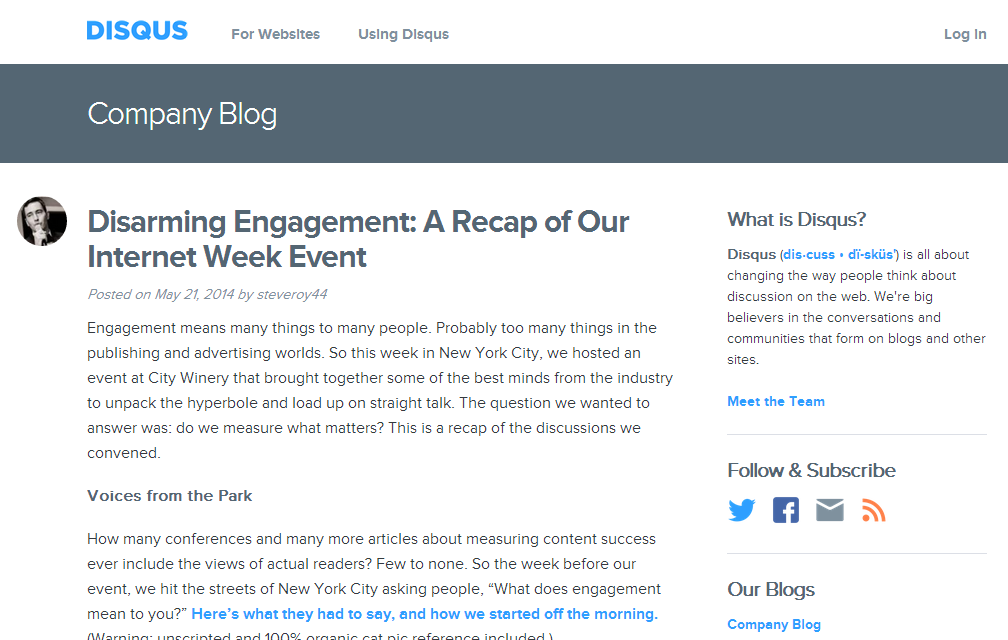If there’s a company you want to work for, your first step should be learning more about it. Get a sense of its corporate culture, understand what its employees do all day, and sharpen the skills that you need to succeed there.
A good corporate blog can help you do all three. The companies on this list range from obscure startups to well-known behemoths. Some blogs cover arcane technical topics. Others are focused on helping you use that company’s products more effectively. And some are straight-up wild cards, filled with fascinating posts on a wide variety of topics.
Buffer
Buffer makes a social-media post scheduling app, but they’re even better known for their excellent blog. They made waves with a recent post about their salary formula, essentially revealing how much they pay their employees.
The blog is a goldmine of well-written, well-researched content on a wide range of topics. You can read about the one line of a cronjob configuration, unchanged since the company’s founding, that generates millions of dollars a year in revenue. Or about how, if you play it right, you can turn downtime from a potential disaster to an opportunity to make your customers love you more.
Priceonomics
This data-crawling startup has a surprisingly eclectic blog. Seemingly inspired by the similarly-named Freakonomics, Priconomics’ data nerds tackle interesting questions like why expensive hotels charge for wi-fi or how much it would cost to book your favorite band.
Of course, they also write about topics of direct interest for developers, like whether anyone actually reads PDFs or how RetailMeNot rose to dominance thanks to great SEO.
Digital Ocean
The developer-focused cloud hosting company offers a wealth of resources for devs. Hundreds of tutorials cover a wide range of topics, with a particular focus on server management and Ubuntu. There’s also a Q&A section where you can post your own questions or answer questions from other developers.
On top of the tutorials and Q&A, there’s also an excellent blog. Recent posts include an entry by Digital Ocean VP Mark Imbriaco, a transplant from GitHub, on Empowering Developers Through Infrastructure.
Adaptive Path
A leading UX consultancy, Adaptive Path’s blog offers insight into interaction design and the consultant’s role.
For developers interested in UX, there is a wealth of illuminating pieces. Behavior Change as a Value Proposition explores the ways intelligent data gathering can lead to products that users are more likely to integrate into their lives. The Anatomy of an Experience Map explains how those increasingly popular planning tools work, and could be immensely valuable to anyone who works with UX designers on a regular basis.
Amazon Web Services

Fresh from a much-needed redesign, the Amazon Web Services blogfocuses on the technical side of the platform. It shouldn’t be much of a surprise that the people who originated cloud computing know how to talk about their platform.
Though it’s probably of most interest to more experienced developers and those familiar with the AWS platform, those who are interested will find a massive amount of detailed, well-written content. One interesting recent article series details how to use a Raspberry Pi to create a home file share that automatically syncs to Amazon S3; another explains how AWS uses elastic load balancing to respond to changing server load.
Evernote
Evernote’s blog focuses largely on how the company’s popular note-taking and productivity software can make your life easier. It does a great job of it, though, with articles on how to share information among your team or to manage your freelance career. If you’re one of the many who uses Evernote, the blog is valuable reading.
Comscore
It shouldn’t come as a surprise that one of the leaders in analytics has a blog full of useful information to measure your website’s impact. Whether you’re looking to measure what matters in social media or understand the importance of ‘mobile-only’ audiences, the Comscore blog can help you better understand the connection between your work and your goals.
37Signals
You’re probably already reading this, but if not, you probably should be. The makers of products like Basecamp are thought leaders in the development world, particularly when it comes to Ruby on Rails. Their blog posts are elegantly written thought pieces on many aspects of web development.
Articles include thoughts on driving development with budgets rather than estimates, getting better at making money, and why enterprise software sucks.
Adobe
No matter who you are, you probably interact with at least a couple of Adobe products on a regular basis. The software juggernaut hosts a few dozen employee-written blogs that covers their entire suite of products.
If you use Photoshop, one recent post on that team’s blog teaches you a more efficient way to generate custom workflows. If you’re interested in security, that blog has an excellent review of the top 10 hacking techniques of 2013. The breadth of blogs is too wide to fully cover here, but it’s safe to say you’ll find something that impacts your day-to-day work.
Disqus
This Y Combinator startup is the most popular blog comment hosting service on the web, and much of their blog’s content focuses on the product. If your site uses it, their blog is essential reading. Even if you don’t use it, though, there’s a lot of value in reading their posts, because understanding the habits of online commenters will give you a lot insight into how people engage with your site.
Offerings include excellent data-based research on the demographics and habits of online commenters, but also includes topics of general development interest like how they scaled Django to 8 billion monthly pageviews.
Treehouse
A leading website for online coding education, Treehouse’s blog is a goldmine for developers, with uniformly excellent posts coming out every couple of days. Posts range from musings on job satisfaction for developers to nitty-gritty topics like debugging HTML and CSS.
Google Developers Blog
Unsurprisingly, Google encourages its employees to blog about their work, and the results are often excellent. Example: a video series, Compressor Head, is a comprehensive introduction to the history, science, and future of file compression, and is mind-bendingly cool if you pay attention.
HTML5Rocks, Google’s HTML5 blog, gets a lot of love, for good reason. It features beginner- to expert-level tutorials on a huge gamut of topics, and a resources page – books, tools, documentation, reference – that’s all quality.










